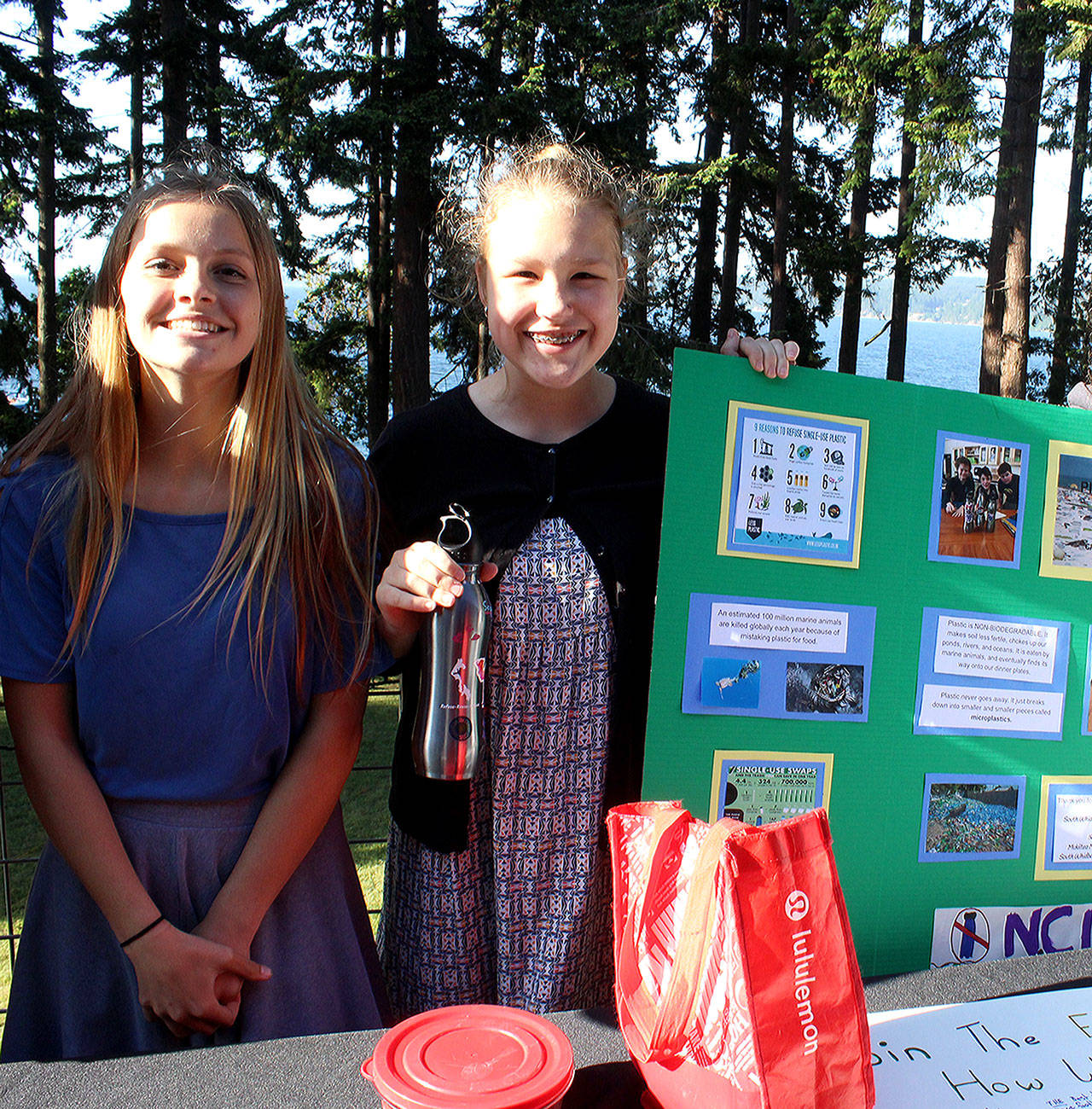A goal of reducing single-use plastic in schools resulted in cool refillable water bottles that were given away free to seventh and eighth-graders of the South Whidbey School District.
Whidbey Island is outlined in white on the stainless steel bottles. There’s also a tiny globe surrounded by the words, “Be the change.”
Students behind the idea proudly showed off their action plan and finished product at the South Whidbey Schools Foundation annual fundraiser June 1 at Freeland Hall.
Every year, the independent, nonprofit organization has several fundraisers, including the June gala dinner. Every fall, it selects the projects and surprises teachers with good news grant celebrations in the classroom.
Supporters kicked in $35,000 at the sold-out gala via $75-a-plate tickets, auction items, raffle tickets and a dessert dash. Colorful signs saying “Support the Kids” served as auction bid numbers.
“This is a new record, about $12,000 more than last year,” said John Riles, foundation treasurer.
Teacher Susan Milan leads a 7th-and 8th-grade class called Changemakers and that’s where the reduce-reuse water bottle idea came from, she said.
“The students were asked to choose a topic that they cared about and wanted to make a positive change,” she said. Talking about the lessons learned during the project were Ava Ferguson, Audrey Gmerek, Katya Schiavone, Morgan Batchelor, Abi Moss and Sophia Patrin.
“We chose water bottles as a way to reduce plastic use in our school,” said Ferguson as she gathered with the group that called themselves “the Reducibles.”
Students researched how to come with a design, check out possible manufacturing companies and learned the art of asking for money for a cause.
They were just one of several student groups demonstrating how they used grant money given to teachers by the South Whidbey Schools Foundation.
Students gave short slide presentations before 125 dinner guests, thanking them for providing opportunities such as a Salish Sea Sailing Expedition to explore the health of Puget Sound, math competitions and music activities.
Fourth-graders kept track of the phases of the moon and kept a journal in Rachel Kizer’s class; she also received funding to connect students with local history in field trips to local museums and the Tulalip Tribes Hibulb Cultural Center.
The foundation awards teachers grants to “foster educational excellence and innovative process for the benefit of students.”
It also recognizes teaching excellence with annual awards and accepts corporate, individual and government grants and donations on behalf of the school district.
“We have a pretty amazing community with such a high percentage of non-profits per capita,” Foundation President Shelley Ackerman remarked. “And they all do well.”
Since its inception in 1994, the Schools Foundation has funded more than $285,000 in teacher-requested projects and materials.



